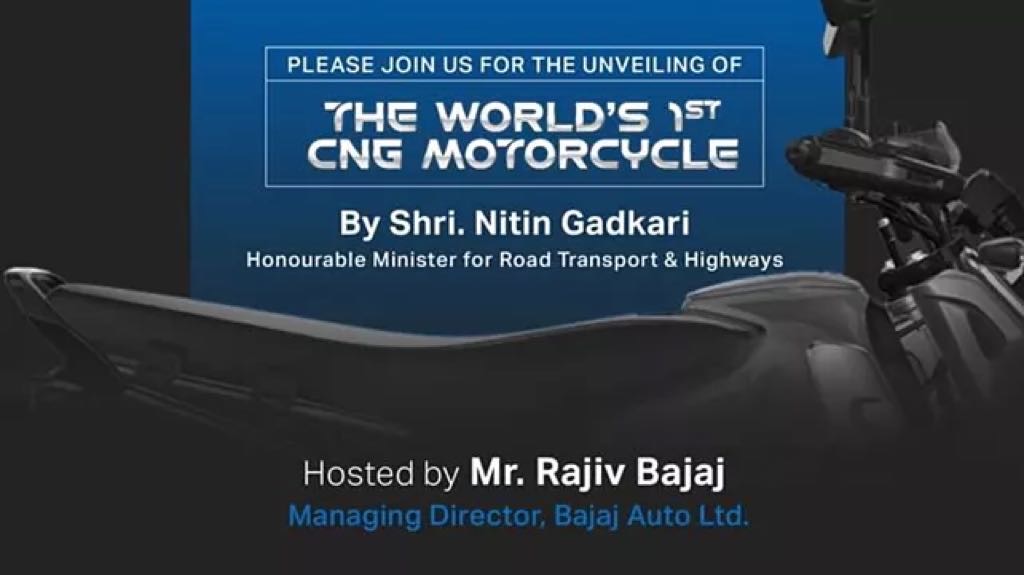
Bajaj CNG bike will be the world’s first CNG powered motorcycle
Bajaj Auto is set to unveil the highly anticipated CNG motorcycle, likely to be called the Bajaj Bruzer, on 5th July. This groundbreaking launch marks the introduction of the world’s first production CNG bike, showcasing Bajaj’s commitment to innovation and sustainability in the automotive sector.
The Bajaj Bruzer, which has been spotted in testing phases multiple times, is expected to be launched in two distinct variants. The bike’s design seamlessly blends aesthetics with practicality, featuring a streamlined fuel tank, an extended seat and minimalistic body panels.
Blueprints of the Bajaj Bruzer highlight a unique chassis configuration. The CNG tank is strategically placed along the length of the bike, complemented by a ‘sloper’ engine design. Additionally, the bike includes a small petrol tank to extend its range and provide a backup fuel option.
While the specific engine details remain undisclosed, industry speculation suggests it could house a 125cc commuter engine paired with a five-speed gearbox. This setup aims to deliver a balance of performance and fuel efficiency.
The two expected variants of the Bajaj Bruzer cater to different market needs. The urban variant is designed for city commuting, while the rural version is equipped with features such as a sump guard, knuckle guard and handlebar brace. These additions are intended to enhance durability and performance on challenging terrains.
Bajaj is likely to announce the price of the CNG bike during the unveiling event, with expectations set around Rs. 80,000/- (ex-showroom). This competitive pricing could make the Bajaj Bruzer an attractive option for both urban and rural consumers looking for a cost-effective and environmentally friendly transportation solution.
As the automotive industry continues to explore alternative fuel options, Bajaj’s introduction of the CNG motorcycle represents a significant milestone. The Bruzer is poised to offer a practical, sustainable and innovative mode of transportation, potentially paving the way for future developments in green mobility.





